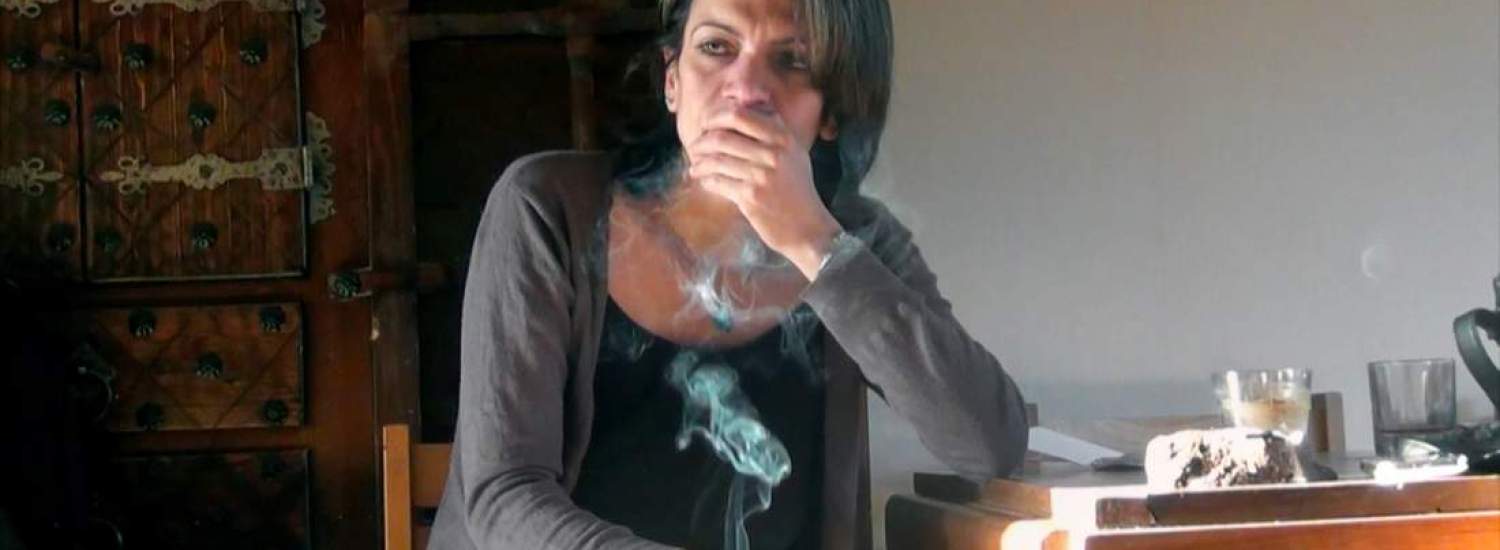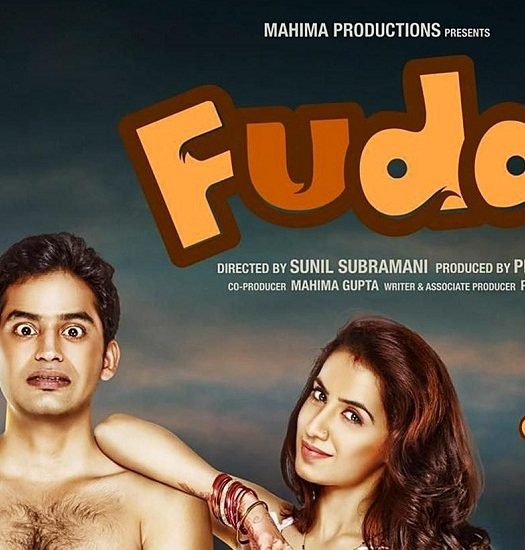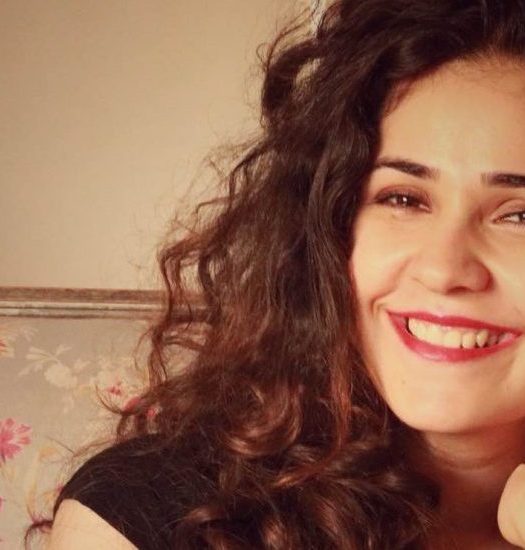I was arrested, blindfolded and imprisoned during the filming – Sean
British documentary filmmaker Sean McAllister’s award-winning documentary A Syrian Love Story is shot across a period of five years, exploring the life, hopes, dreams and despair of a Syrian couple. This heartbreaking story shows how the couple, Amer and Raghda, flee Syria during the ongoing civil war while chronicling their ability to cope with the pressure of leaving their native and beloved land for a safe future.
After watching the film, which leaves one speechless on seeing the couple’s relationship disintegrate as they flee Syria, we had to wipe away tears and swallow the lump in our throat before getting into a conversation with Sean.

Documentary filmmaker Sean McAllister
How, when and where did you come across this couple? What was it about them that made you want to tell their story?
I was in Syria for nine months and was looking at various stories. At that time I was curious about their booming tourist industry. I also visited the bars and nightclubs in the old city of Damascus. But Amer was presented to me by someone saying that I should speak to him. When I met him and got to know that he was left alone to look after his kids, I felt that it was a heart-wrenching story.
Palestinian freedom fighter Amer Daoud and Syrian revolutionary Raghda Hassan first met each other in prison where they were locked because they spoke against the oppressive regime. That is when their romance started. I also thought that my film could try to help get his wife get out of prison. That was my original motivation.
You were also arrested while shooting this film. Did you anticipate for something like this to happen? Also, after having gone to jail, did your approach towards the film change?
In October 2011, I was arrested in a Damascus café, blindfolded and imprisoned for a week. I even lost much of the footage that I had captured. While being interrogated in prison, the risks of documentary filmmaking in the Middle East were made rapidly apparent. I never went back to film in Syria after the jail incident. They kicked me out. I was in places like Samaria and even in Lebanon. This (incident) made me more conscious and guarded on the streets.
Would it be right to saying that your film paved the a path for the couple and their children to lead a normal life? If it wasn’t for this documentary, they would have been amongst thousands of other Syrians who are starving to death instead of being settled in France where they are given political asylum in Albi.
I worked undercover with a tourist visa and filmed the couple and their sons first in the Syrian capital of Damascus, Tartus and then Yarmouk, the Palestinian camp on the outskirts of Damascus. Subsequently, I traveled to Lebanon and then in Paris, where the family relocated. In a way, perhaps yes, them being in the film may have helped. Otherwise, they would have always been stuck. Because Yarmouk was bombed by Assad and a lot of people died in the place where they lived.
In the course of five years, your camera has seen the couple grow a bit old, lose all the love they had for each other, get divorced and the kids growing. Did you form a very different sort of bond with these people, which made them more than just subjects for you?
We have to become a part of the family to get intimate with them and become part of the daily sequences. Building trust is important to become part of the family. I keep getting messages from them that they want to see me as they miss me.
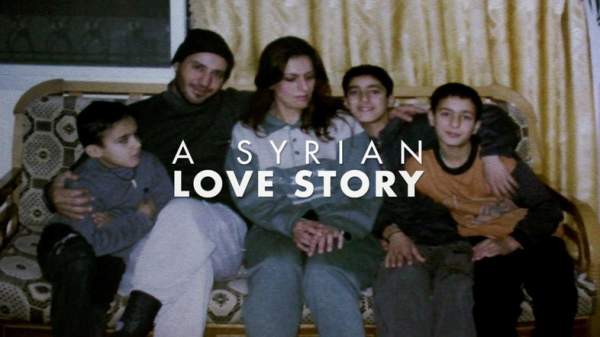
Amer and Raghda with their kids
The film is mostly shot in their house with all of them being every comfortable with the camera. Which camera did you shoot on and what was the placement like?
The film is shot entirely on a $350 camera. If you are asking me how to become invisible while shooting, then the truth is that one cannot really become invisible because you mediate through yourself. I mostly work like this. Sometimes I’m filming and sometimes I am not. Even they (the family) couldn’t have remembered what was filmed and what was not because the film has been shot over five years.
The filming began in Syria in 2009, prior to the wave of revolutions and changes in the Arab world. With the ongoing civil war in Syria and it being a conflict zone for quite some time now, the documentary becomes really important and has more reasons to garner attention. What has been your learning from this documentary?
I might not want to do another one because it is really hard. I’m really sad about the situation in Syria. I wasn’t really angry and political earlier but now I’m quite angry and political about what is happening over there. I get angry when I think about everything. When Raghda was in prison, I remember Amer saying to me that he doesn’t want his kids to have this life. He wanted them to have a life like mine.
The subjects of your others films such as The Liberace of Baghdad and The Reluctant Revolutionary also give very strong messages. Do you deliberately make your documentaries with that intention?
I look for people; participants who are going to engage in the storytelling process in some way. But with A Syrian Love Story it was quite different. The equation between the couple kept changing and the whole navigation of the story changed. Participation is an important word for me. In the case of A Syrian Love Story, after we finished the film last year, Amer and Raghda have been traveling with me and the film and meeting the audience. That gives them a lot of hope. It has also given them something more, because they lost the fight against Assad and against the country. This film has given them a tool to travel the world and talk about Syria and the refugee crisis. Their five years of pain with me were not wasted.
While working on such subjects, which demand time and there’s an uncertainty about your safety, there must be a lot of sacrifice. It seems that you don’t get to spend a lot of time with your family. But what it is it that still draws you to these stories?
My family is used to it. When I’m back, I’m physically around but not mentally there. Showing the film and seeing the reaction that it gets motivates you to make another one. I have been thinking about doing other things such as fiction etc. After seeing the film, an Indian fiction director said, “If you do fiction, you are never going to get anywhere near to the kind of emotions or reality that you achieve in your films. What you have got here, you won’t get anywhere.”
But this kind of work demands a lot from you. In a way, you have to abandon your family to a large extent and adopt a new family. You have to abandon a relationship and fall in love with a character in a more creative way.
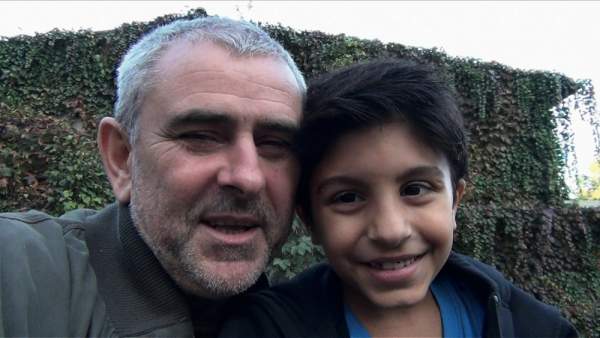
Sean with the couple’s youngest son Bob
Is it a very thrilling job?
A lot of times it is painful. People who really know me have seen me struggle on the lonely days in Damascus when I didn’t have Amer or any money. When I was constantly thinking that no one even wanted the film. The film wasn’t actually commissioned initially. I met Amer when I was shooting the documentary, The Reluctant Revolutionary in Yemen for BBC and at the time, Syria was on the cusp of an uprising. But when I went to Damascus and was driven to film Amer, BBC wanted more newsy shots. I delivered the story on Yemen but BBC wasn’t interested in another Arab story so they passed on this story.
The film recently screened to a full house at DIFF. Did you expect such a response?
It was an early screening and I thought that no one would turn up. But the hall was absolutely jam-packed. One can really tell when cinema is working well. It was so full of emotions. When I was coming here, I didn’t really know how Indians would react to it – whether they would be interested in a story about Syria. I’m really shocked that the response has been more moving than most of the European screenings. It is a moving and a topical film.
Some screenings just go over the edge. And this was that kind of a screening. Someone put a photo on Facebook of people crying while watching the film. Someone even came up to me, crying, and that was the most emotional thing for me. There was a woman who came to me and said that she wanted to hug me. This is what happened in our initial screenings. But that has not happened for quite a while now. That is why this screening was special.

